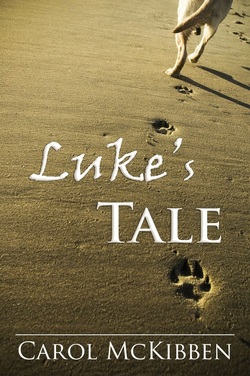
What if you buy something that your husband doesn’t think you can afford, hide it and then he finds out about it? Will he still love and support you anyway? Or divorce you?
What if your wife/husband is diagnosed with cancer? Will you love and support or leave? (See earlier blog on this subject.)
What if your spouse is trim and fit when you marry but changes for whatever reason over time. Do you still love and support?
Loving unconditionally means not placing your conditions or expectations on other people and only loving them if they meet those expectations or conditions.
It’s very God-like, isn’t it? Very dog-like. Do you find it interesting that DOG is GOD spelled backwards? Are dogs a living example of how we should love each other? Do you believe they were put here for that purpose? They love us, no matter what.
In Luke’s Tale, Luke is Ashlundt’s constant companion, aiding the man to come to grips with his loved one’s illness. Then, later, he is Sara’s constant companion after another tragedy strikes. He is there for his loved ones through all their disillusionment and misfortune. I know whenever I am sick or stressed, the real Luke, and now my current dogs, just snuggle up next to me. Just knowing that they are there for me makes all the difference in the world.
Often times when tragedy strikes our friends or family members, we don’t know what to do. The simple answer is to just be present for them. And love them. Words really aren't necessary.
It is important for all of us to think about how we subconsciously put conditions on each other. How other than what I’ve outlined earlier do we do this? Do we blame each other for tragic events in our lives? Do we try to work out problems or just leave them behind?
Not one of us is perfect. We have flaws and make mistakes, and loving someone means being willing to stick through the ups and downs, the good and the bad. I’m not advocating that we stand by someone abusive … not at all. That’s not what I mean by unconditional love. But if someone is worthy of your love in the beginning, they should be worthy of your love in the end.
To grab a copy of Luke's Tale, click here.
Til Next Time,
Carol



 RSS Feed
RSS Feed
